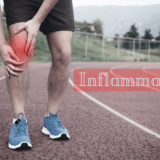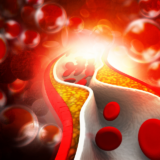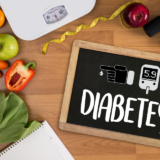“Aerobic” means “in the presence of, or with, oxygen.” while “Anaerobic“, on the other hand, means “the absence of, or without, oxygen.”
Aerobic exercise is any type of cardiovascular conditioning. It can include activities like brisk walking, swimming, running, or cycling. You probably know it as “cardio.”
Anaerobic exercise is performed at an intensity that causes you to get out of breath quickly and can be sustained for only a few moments. Weight lifting and sprinting are examples of anaerobic exercise.
- Your breathing and heart rate will increase during aerobic activities. You know you’re doing aerobic exercise when your heart’s thumping and you’re breathing faster than you do at rest but you can sustain the activity for extended periods of time. The recommend cue is “warm and slightly out of breath” to determine if your activity level is aerobic. Aerobic exercise helps keep your heart, lungs, and circulatory system healthy. Aerobic exercise is the type of moderate-intensity physical activity that you can sustain for more than just a few minutes with the objective of improving your cardio-respiratory fitness and your health.
- Aerobic exercise can help maintain a higher heart rate while the oxygen is used to burn the fats. At the beginning of an aerobic exercises session, glycogen is broken down to produce glucose. If there is not enough glucose available, it would result in fat beginning to decompose. When our body starts to use fat as a fuel, it causes a condition which is usually described as “hitting the wall”
- It strengthens your heart and lungs, trains your cardiovascular system to manage and deliver oxygen more quickly and efficiently throughout your body. Aerobic exercise uses your large muscle groups, is rhythmic in nature, and can be maintained continuously for extended period of time.
- Regular aerobic exercise will bring remarkable changes to body, metabolism, heart, and spirits. It has a unique capacity to exhilarate and relax, to provide stimulation and calm, to counter depression and dissipate stress.
- Exercise reduces levels of the body’s stress hormones, such as adrenaline and cortisol. It also stimulates the production of endorphins, chemicals in the brain that are the body’s natural painkillers and mood elevators. Endorphins are responsible for the “runner’s high” and for the feelings of relaxation and optimism that accompany many hard workouts — or, at least, the hot shower after your exercise is over.
Behavioral factors also contribute to the emotional benefits of exercise. As your waistline shrinks and your strength and stamina increase, your self-image will improve. You’ll earn a sense of mastery and control, of pride and self-confidence. Your renewed vigour and energy will help you succeed in many tasks, and the discipline of regular exercise will help you achieve other important lifestyle goals.
- Aerobic exercise is usually performed to music and may be practiced in a group setting led by an instructor (fitness professional), although it can also be done solo and without musical accompaniment. With the goal of preventing illness and promoting physical fitness, people perform various routines comprising a number of different dance-like exercises.
- A higher percentage of fat is burned during aerobic exercise than during anaerobic exercise. Here’s why. Fat is denser than carbohydrate (fat has nine calories per gram and carbohydrate has four), and so it takes more oxygen to burn it. During aerobic exercise, more oxygen is delivered to the muscles than during anaerobic exercise, and so it follows that a higher percentage of fat is burned during aerobic exercise when more oxygen is available. When less oxygen is present, like during anaerobic exercise, a higher percentage of carbohydrate is burned.
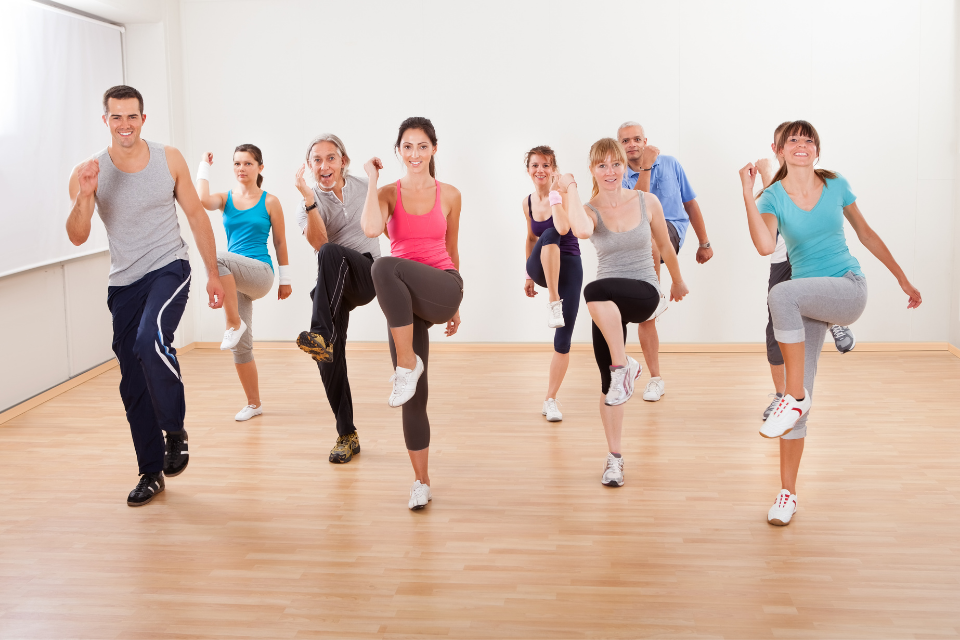
Benefits of Aerobic Exercise
In addition to strengthening your heart and cardiovascular system, participation in regular aerobic exercise has many health benefits. Aerobic exercise:
-
- Improves circulation and helps body use oxygen better
- Increases energy
- Increases endurance, which means you can work out longer without getting tired
- Helps reduce the risk of developing heart disease
- Helps reduce the risk of developing diabetes
- Helps reduce body fat
- Helps you reach and maintain a healthy weight
- Helps reduce stress, tension, anxiety, and depression
- Improves sleep
Lose weight with Aerobics exercise
- Losing weight is not very easy for most people. Most people don’t really know how to lose weight healthily. This is one reason why obesity has increased tremendously in most parts of the world. Losing weight not only takes time but also discipline. However, that is what most people don’t have. They don’t have the patience which is required to lose weight.
- To lose weight effectively with aerobics, the workout should raise your heartbeat for an extended period of time. You should continue the aerobics workout for at least twenty minutes at a time. This is because this is the point where your body starts to use excess fat for energy.
- However, aerobics workouts don’t have to be boring and don’t have to be the same thing day after day. The best way to continue your aerobics workout is to find several workouts that you can combine throughout the week or month. That way, your workout never becomes dull and you won’t get easily burned out.
Another factor that you must remember is to never lose your motivation. Most often, the reason people fail to lose weight is because their motivation wanes after a few days or weeks. Healthily losing weight takes time. It can be weeks or even months before you reach the weight you desire Most people don’t realize is that it takes twice as long to lose the weight as it does to gain it. So, the most important thing to remember is to never lose your motivation and continue with your aerobics workouts to lose weight.
Cardio kickboxing
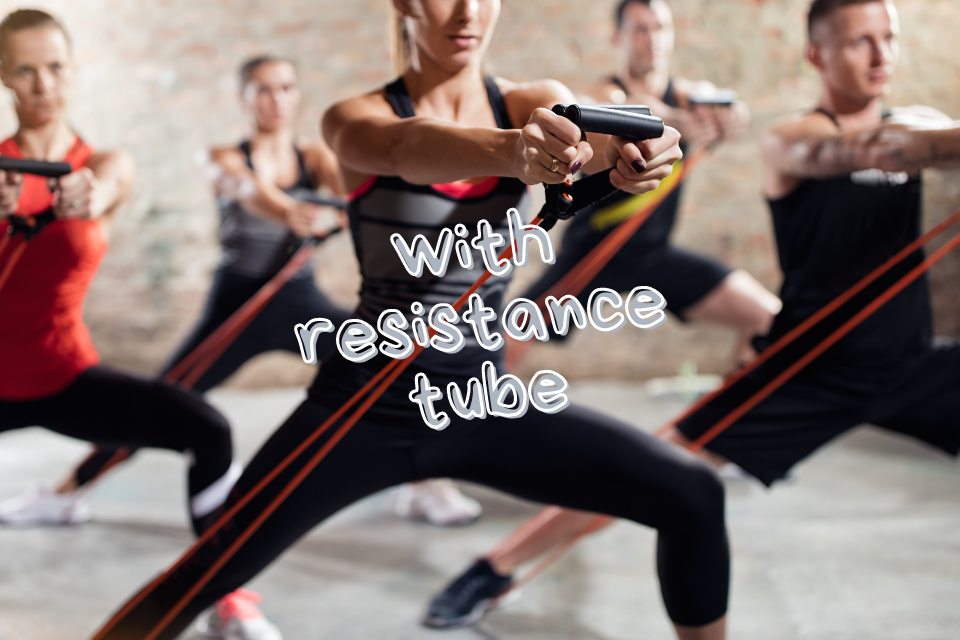
Cardio kickboxing is a mix of martial arts, boxing, and aerobics. Your may start with a warm up of jogging, jumping jacks, or strengthening exercises, such as push ups. Then expect a series of punches, kicks, and hand strikes for the main workout.
Benefits: Kickboxing is a high-impact exercise that builds strength and endurance. It may also reduce stress and improve your reflexes.
Safety: Drink plenty of water throughout the class. Take a break if you feel dizzy.
Duration and frequency: 60 minutes, 1 to 3 times per week
Always finish your workout with a cool down and stretch. Drink plenty of water throughout.
Zumba
If you like to dance, Zumba is a fun choice for an aerobic workout. Basically Zumba is easy-to-follow dance moves set to upbeat music. Finish your workout with a cool down and stretch.
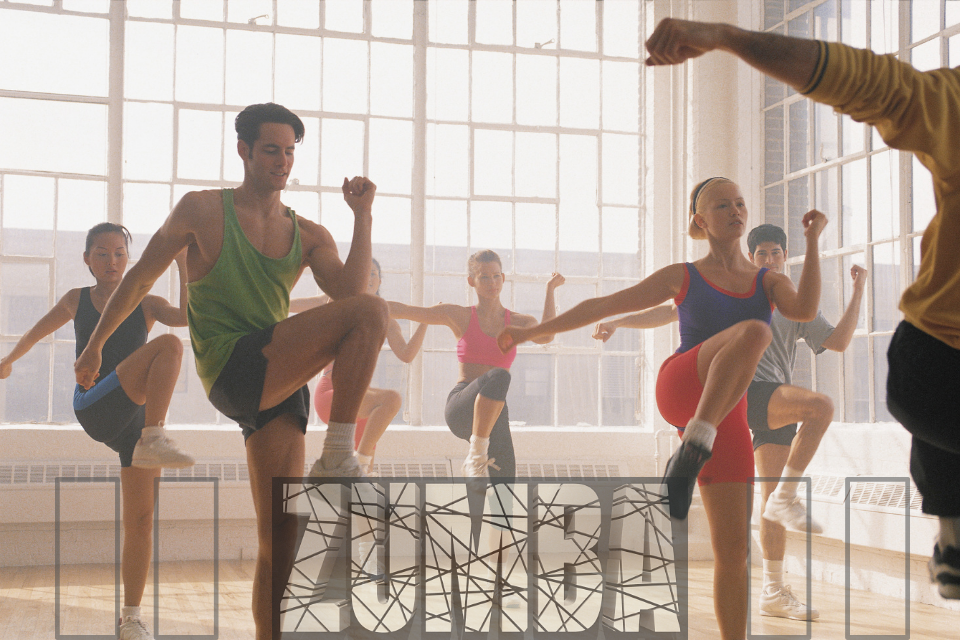
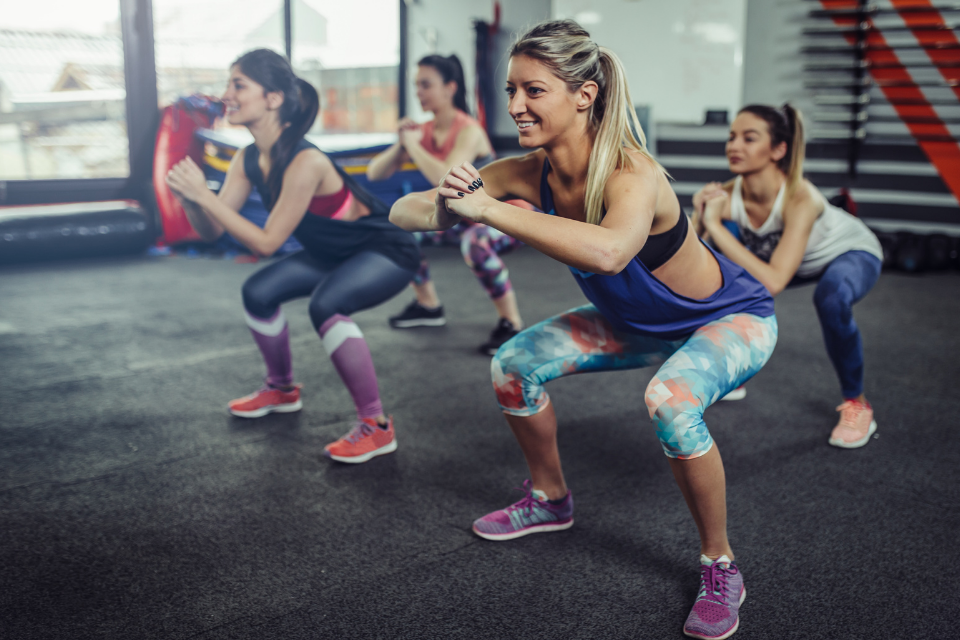
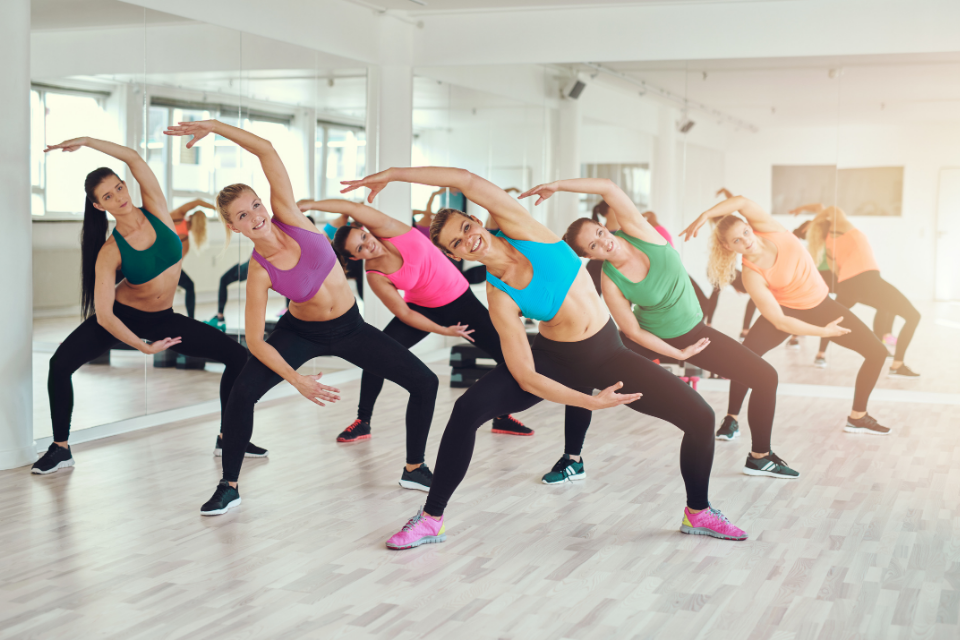
Benefits: Zumba is beneficial for heart health, improves coordination, tones your entire body, and helps relieve stress.
Safety: Drink lots of water during the class. Take a break if you feel tired or dizzy. Wear shoes that provide good ankle support if you’re prone to ankle injuries.
Duration and frequency: 60 minutes, 1 to 3 times per week
Running or jogging
If you’re a beginner, run for 20 to 30 minutes twice a week. Your pace should be conversational during the run. You can alternate between 5 minutes of running and 1 minute of walking to start. To stay injury-free, always stretch after your run.
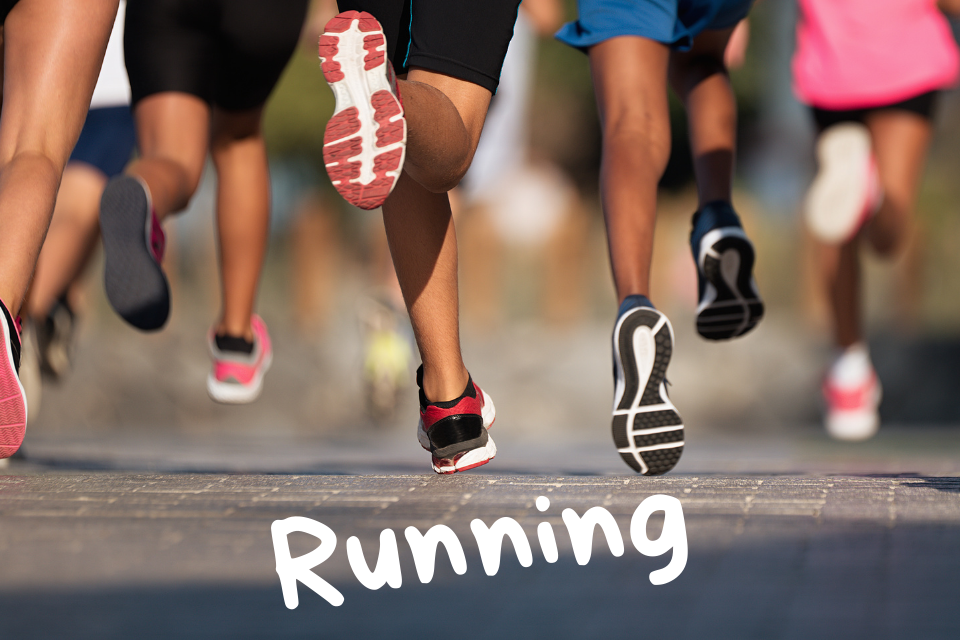
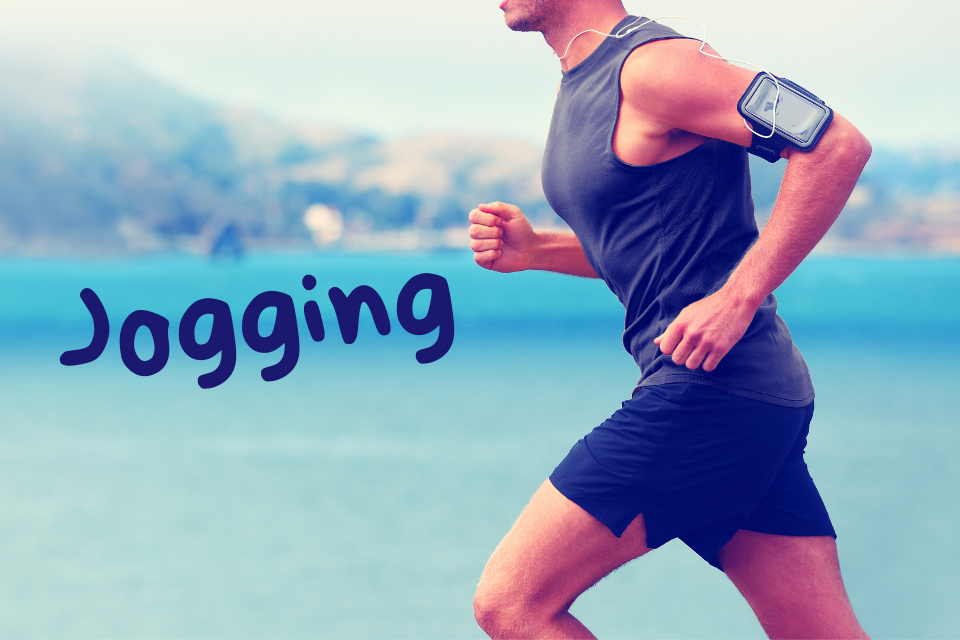
Benefits: Running is one of the most effective forms of aerobic exercise. It can improve heart health, burn fat and calories, and lift your mood, just to name a few.
Duration and frequency: 20 to 30 minutes, 2 to 3 times per week
Walking
If walking is your main form of exercise, aim to get 150 minutes per week. This can be broken down into 30 minutes of walking 5 days a week. Or, walk briskly for 10 minutes at a time, 3 times each day.
You can also use a fitness tracker to keep tabs on how many steps you take each day. If your goal is to walk 10,000 steps a day, start with your base (current amount you walk) and slowly up your daily step count. You can do this by increasing your daily steps by an extra 500 to 1,000 steps a day every 1 to 2 weeks.
So, once you’ve identified your base, add an extra 500 to 1,000 steps. Then, 1 to 2 weeks later, increase your daily step count by an additional 500 to 1,000 steps.
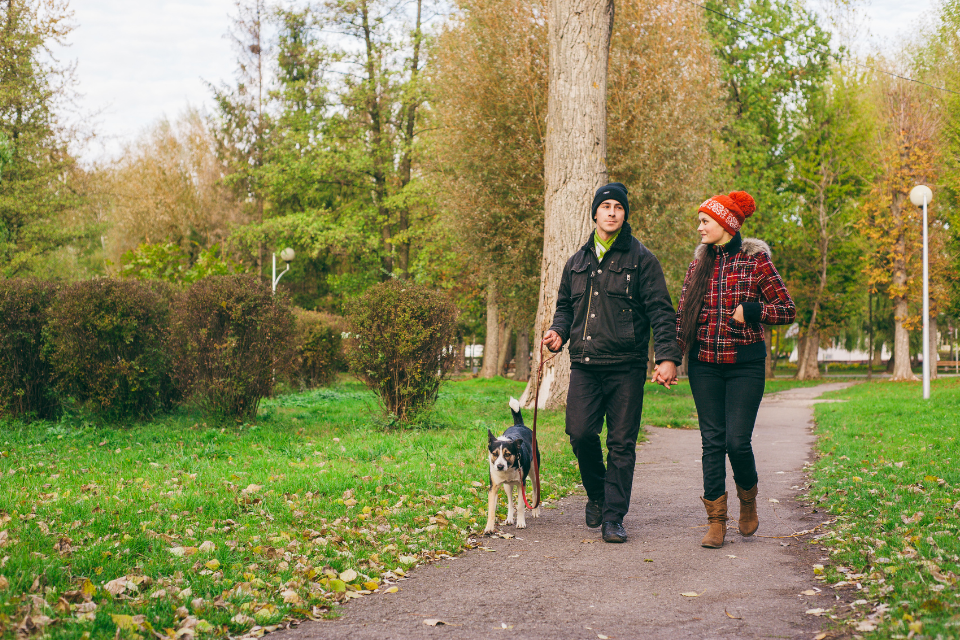
Benefits: Walking daily can reduce your risk of heart disease, obesity, diabetes, high blood pressure, and depression.
Duration and frequency: 150 minutes per week, or 30 minutes 5 days a week
Swimming
Swimming can be one of the aerobic exercises. You’re also increasing your heart rate, toning your muscles, and building strength and endurance — all without adding additional strain to your body.
You can start by swimming laps using one stroke, such as freestyle. As you swim more, add additional strokes. For example, you could do 1 to 4 laps of freestyle followed by 1 to 4 laps of breaststroke or backstroke.
If you get tired, rest on the side of the pool between laps. Always follow the safety instructions and guidelines of the pool where you swim.
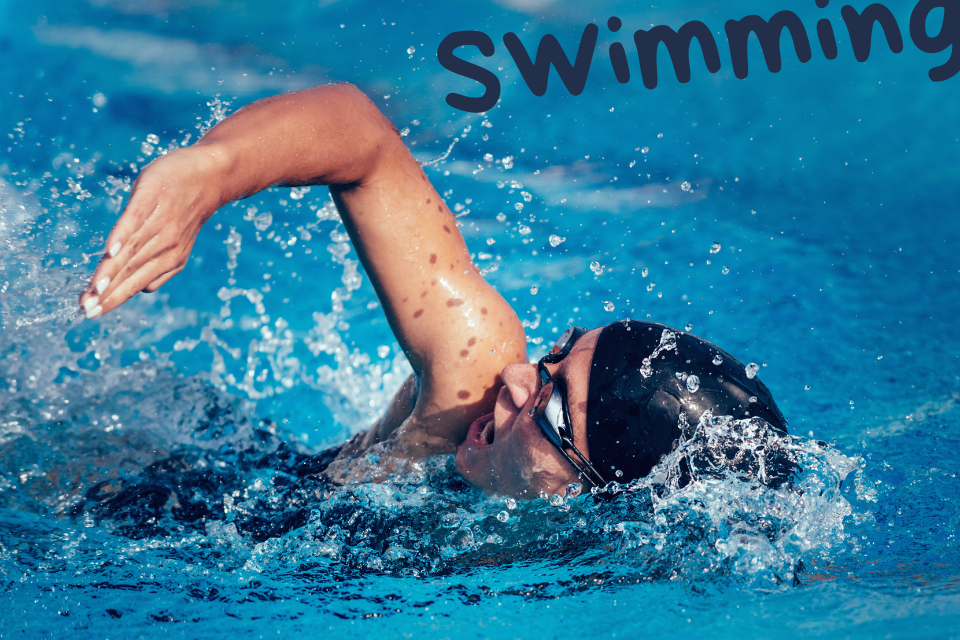
Benefits: Swimming is a low-impact exercise, so it’s good for people prone to or recovering from an injury or living with limited mobility. It can help you tone your muscles and build strength and endurance.
Safety: Avoid swimming alone and, if possible, choose a pool with a lifeguard on duty. If you’re new to swimming, begin by enrolling in swim lessons.
Duration and frequency: 10 to 30 minutes, 2 to 5 times a week. Add 5 minutes to your swim time each week to increase your duration.
Dance Aerobics
The low-impact aerobic dance classes are effective for you if you are overweight, older and pregnant. If you are fit, they are a good alternative when you are recovering from an injury.
However, in spite of its popularity, many people still give excuses to not take up any form of exercise. People often claim that they do not have enough time to go to the gym or that gym membership is much too expensive. No matter what excuse is given, aerobics can actually be done in the comfort of the home.
Exercise is play and recreation; when your body is busy; your mind will be distracted from the worries of daily life and will be free to think creatively.
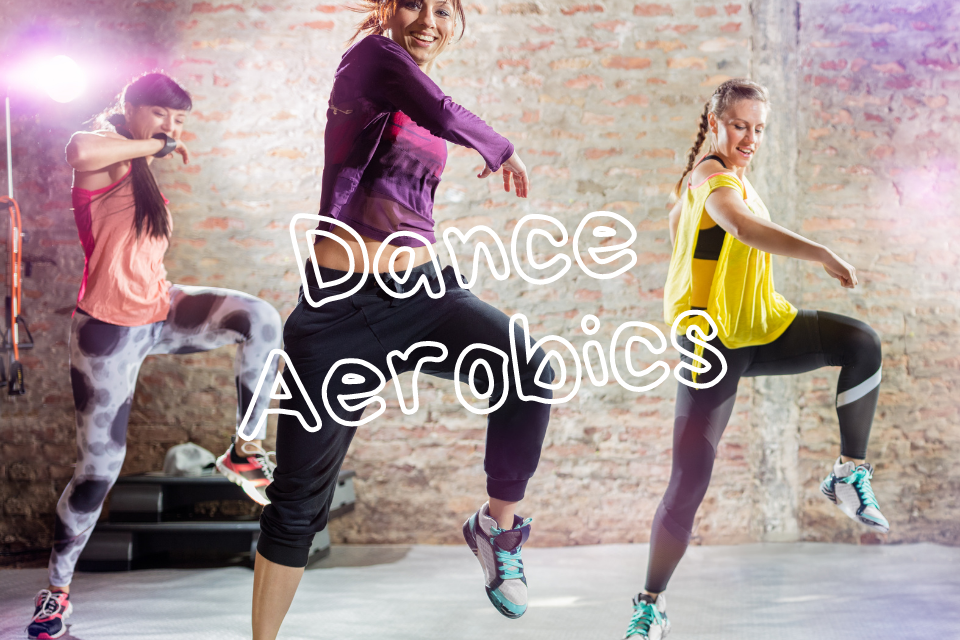
The low-impact aerobic dance classes are effective for you if you are overweight, older and pregnant. If you are fit, they are a good alternative when you are recovering from an injury.
However, in spite of its popularity, many people still give excuses to not take up any form of exercise. People often claim that they do not have enough time to go to the gym or that gym membership is much too expensive. No matter what excuse is given, aerobics can actually be done in the comfort of the home.
Exercise is play and recreation; when your body is busy; your mind will be distracted from the worries of daily life and will be free to think creatively.







